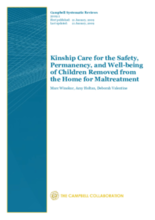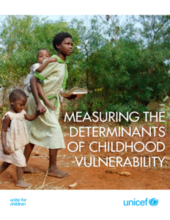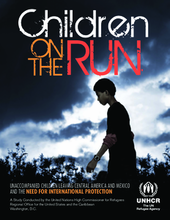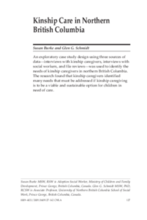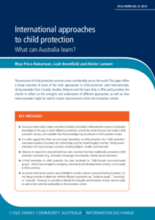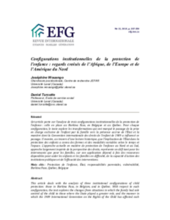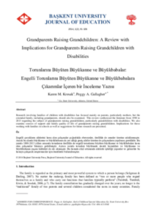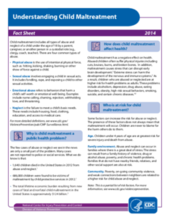This page contains documents and other resources related to children's care in the Americas. Browse resources by region, country, or category.
Displaying 2931 - 2940 of 3197
This systematic review published by the Campbell Collaboration reviewed controlled experimental and quasi experimental studies in which children removed from the home for maltreatment and subsequently placed in kinship care were compared with children placed in non-kinship foster care for child welfare outcomes in the domains of well-being, permanency, or safety.
This study by UNICEF sought to identify key determinants of vulnerability among children –including those affected by HIV and AIDS – that can contribute to developing an improved global measure of vulnerable children in the context of HIV and AIDS. Data from the most recent available household surveys at the time of analysis was used from 11 countries – Cambodia, Central African Republic, Haiti, Malawi, Rwanda, Sierra Leone, Swaziland, Uganda, United Republic of Tanzania, Zambia and Zimbabwe – were pooled.
This report, issued by the United Nations High Commissioner for Refugees, examines the situation and needs of unaccompanied children who emigrate from Central America and Mexico to the United States, and offers recommendations based on those needs.
An exploratory case study design was used to identify the needs of kinship caregivers in northern British Columbia (BC).
Escape the Box is an initiative designed to help raise awareness and try to put a stop to the rapidly growing, money making businesses that many orphanages have become.
This paper offers a broad overview of some of the main approaches to child protection used internationally. Using examples from Canada, Sweden, Belgium and the Gaza Strip, it offers policy-makers the chance to reflect on the strengths and weaknesses of different approaches, as well as how these examples might be used to inspire improvements within the Australian context.
After the cancellation of the 2013 US National Child Welfare Evaluation Summit, the Children’s Bureau decided to develop short videos as a means of sharing ideas and issues that could not be presented at the conference. The result is the Virtual Summit Series, a group of 17 videos that combine illustration, animation, motion graphics, and content from national experts.
Cet article porte sur l’analyse de trois configurations institutionnelles de la protection de l’enfance : celle en place au Burkina Faso, en Belgique et au Québec. Pour chaque configuration, le texte explore les transformations qui ont marqué le passage de la prise en charge exclusive de l’enfant par la famille vers la présence accrue de l’État et la manière dont la Convention internationale des droits de l’enfant de 1989 a influencé ce passage.
This review synthesized the literature from 1990 to 2013 regarding the subject of grandparents raising grandchildren, particularly grandchildren with disabilities.
This brief factsheet from the U.S. National Center for Injury Prevention and Control of the CDC provides an overview of child maltreatment.


